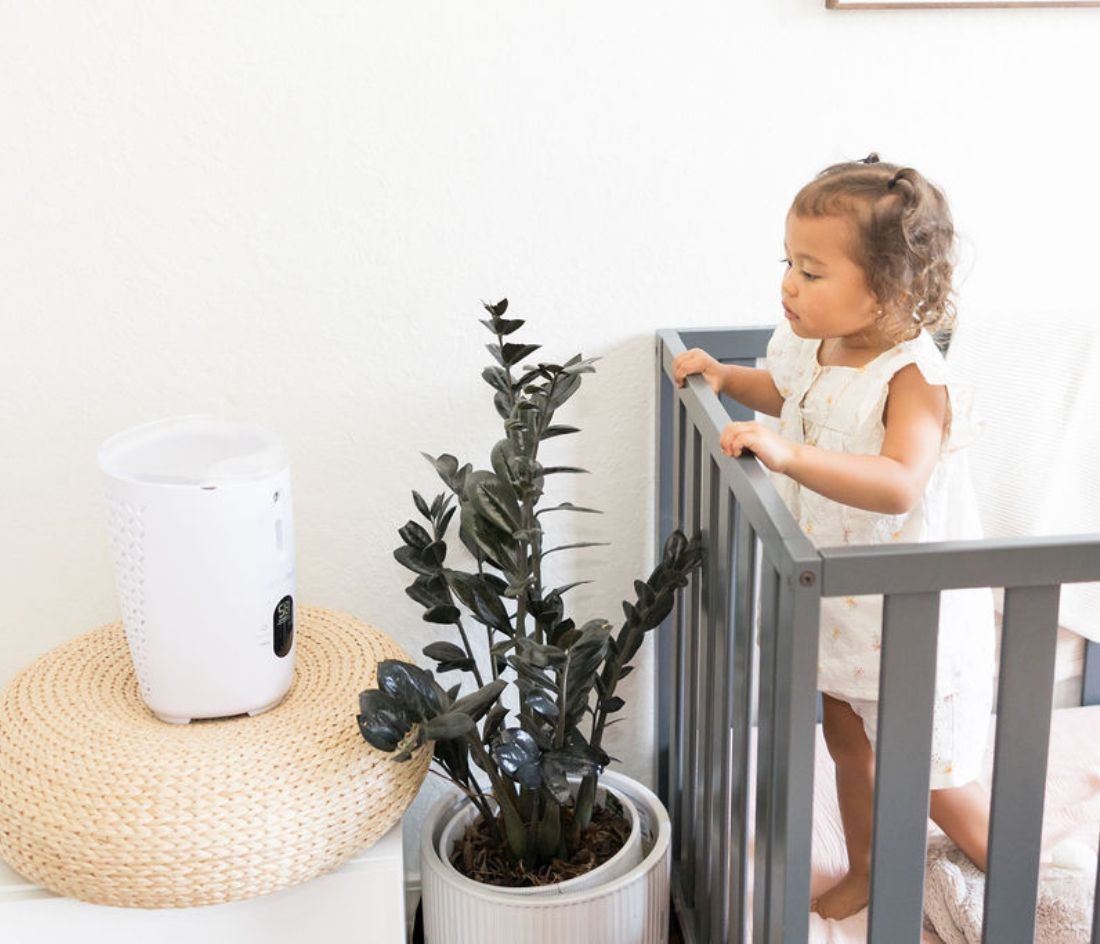Guest Post by Katy Fleming, MA, LPC, BSN, RN
As a parent, it’s stressful when your little one’s temperature rises.
Some caretakers may call the pediatrician’s office or grab a medicine bottle. Others may lose sleep worrying about the dangers of their child’s fever.
Common myths and misbeliefs around fevers cause confusion, unnecessary panic, and sometimes mistreatment.

5 Misconceptions on Fevers in Children
Learn more about the role of fevers and how they affect your child’s body by correcting these five common misconceptions:
99°F is a low-grade fever.
A fever is considered a body temperature of 100.4°F or higher.
Your child’s body temperature will naturally fluctuate throughout the day with higher temperatures more often in the late afternoon and early evening.
If your kiddo plays outside on a hot day, they may feel warm to the touch but will return to a normal temperature in a few minutes. Our kids feel warm for various reasons and it doesn’t automatically mean they have a fever or illness.
After receiving an immunization, when teething or if overdressed, your child’s temperature may slightly rise, as well.
Fevers are always bad for kids.
Fevers are typically harmless and a sign that the body is doing its job.
When the body detects a virus or bacteria, it triggers our immune system to kick in and fight the infection. Since germs don’t like heat, the body releases a chemical to increase your body temperature.
As children’s immune systems fully develop, their bodies attack every germ. For this reason, they’re more likely to get a fever with simple viruses like the common cold.
It’s important to note that fevers may signify potentially serious illness in newborn babies. If your child is 3 months old or less with a fever, call your doctor for further instructions.
In general, fevers are harmless, but you should call your pediatrician’s office for the following reasons:
- If their fever lasts longer than 2-3 days
- Your child has a fever and additional symptoms such as severe ear pain, difficulty breathing, repeated vomiting or diarrhea, or a severe sore throat.
- Their temperature rises above 104°F
- Your child shows signs of dehydration (i.e., not urinating at least every 8-12 hours, a baby not wetting at least 3 diapers daily).
- A child that isn’t acting like themselves (i.e., not interested in playing, drinking, eating).
- Any time a baby younger than 3 months has a temperature of 100.4°
If you can’t break the fever, it’s a serious illness.
Many families pass down generations of at-home remedies and cultural practices.
Parents often mistakenly believe they must lower their child’s body temperature when experiencing a fever.
Before you start a cold bath, there’s no need to remove layers of clothing or use a cool washcloth to lower the body temperature. As mentioned earlier, an elevated body temperature shows that your immune system fights the infection when sick.
Focus on relieving your child’s discomfort such as a light blanket if experiencing chills or an ice pop to soothe a sore throat.
How your child feels and acts is more important than simply the number on the thermometer. Call your doctor if your little one isn’t acting like themselves, has difficulty breathing, or isn’t consuming enough fluids.

All high fevers cause brain damage.
Brain damage can only occur if your temperature reaches 108°F.
A part of your brain called the hypothalamus acts as a thermostat and recognizes when your body is overheating. For that reason, your body temperature will rarely go above 103 or 104°F.
This is rare, and typically only occurs when the child is somewhere very hot such as a car on a scorching summer day.
Treat all fevers with medication.
If your child is playing, drinking, and eating as normal, then they most likely don’t need any treatment.
Look at your child’s symptoms and behaviors rather than just their body temperature. If your child is experiencing pain or discomfort, give acetaminophen or ibuprofen. However, never give ibuprofen to children under the age of 6 months.
Contact your pediatrician for recommended dosage, especially if your child is under two years old.
Want more parenting hacks for sick kids? Check these out:
- Melatonin for Kids: What Parents Need to Know
- 5 Things to Watch For After Having RSV
- Our Favorite Family Sick Day Movies
- What to Do When Your Baby or Child Gets Sick on Vacation
- How to Tell if Your Baby is Sick or Teething

When your kiddo gets a virus, their body fights the infection with a higher body temperature. Fevers usually go away after 2-3 days on their own and don’t require medication.
However, treatment may help your child feel more comfortable if they’re experiencing additional symptoms. Look at their behavior and symptoms rather than only assessing their temperature.
It’s scary when your child gets a fever, but thankfully, they’re not usually serious. Don’t hesitate to call your child’s pediatrician's office for support and recommendations.
The Nozebot is a battery-powered suction device designed to clear nasal congestion in babies and children.



